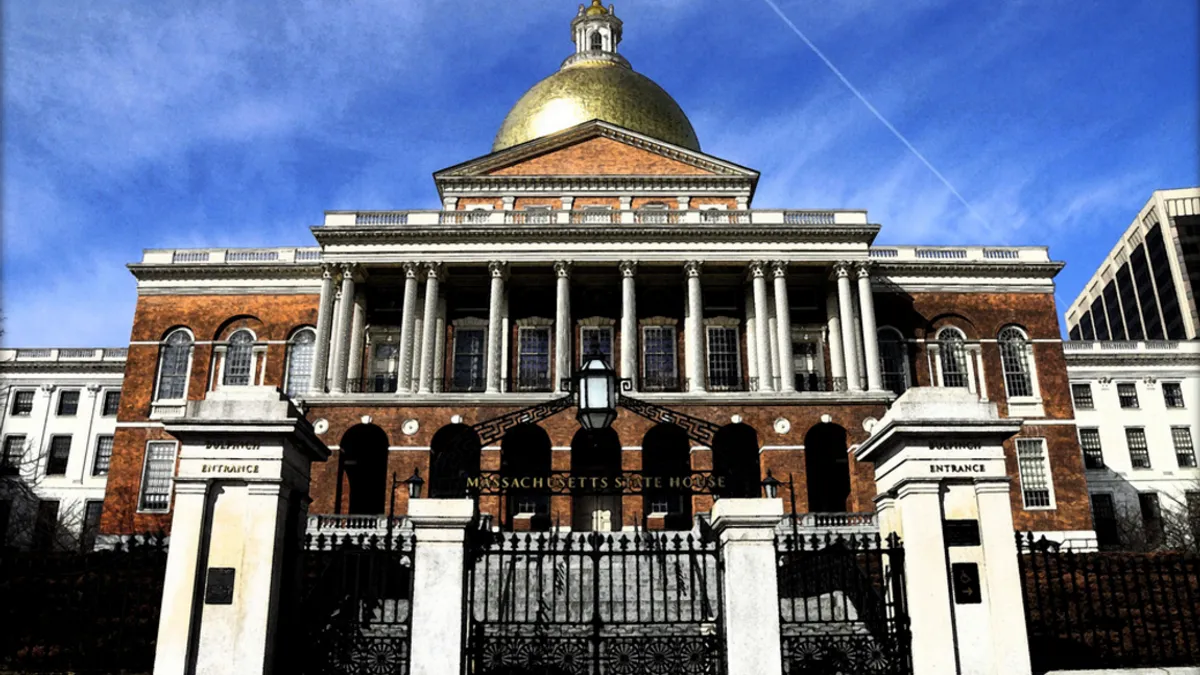Dive Brief:
- Three Democratic lawmakers in Massachusetts have proposed a bill that would require the state use 100% renewable energy by 2035, but then goes further to eliminate fossil fuels from the heating and transport sectors as well.
- The proposal calls for phasing out the use of fossil fuels in Massachusetts entirely 2050, while requiring the transportation sector to run on 50% renewables in the same timeframe.
- The state already has more modest goals in place with the Massachusetts Global Warming Solutions Act requiring the state to reduce greenhouse gas emissions 80% from 1990 levels by 2050.
Dive Insight:
If successful, the Massachusetts bill would launch the state into the company of states with similar aggressive decarbonization goals. So far, the state has mandated 1,600 MW of offshore wind, and is seeking to set an energy storage goal.
Rep. Sean Garballey, one of the bill's sponsors, said in a statement that the measure "provides a bold step by placing the Commonwealth on a path to a cleaner and more sustainable future." He said eliminating the use of fossil fuels would encourages job creation and provide health and environmental benefits.
However, Garballey said that "more importantly, it signals to the country our commitment to long-term solutions in meeting the very real challenges of climate change."
The bill is also being sponsored by Rep. Marjorie Decker and Sen. Jamie Eldridge.
The legislation would require the state's Department of Energy Resources to set binding targets for carbon-free energy growth in major sectors of the economy, and issue regulations to ensure that Massachusetts stays on track towards 100% renewable energy by 2050. The lawmakers' statement, issued through advocacy group Environment Massachusetts, said the bill aims to "complement and strengthen" the Global Warming Solutions Act.
Ben Hellerstein, state director for Environment Massachusetts, said the bill “sends a clear message to officials in DC" as a new presidential administration heads into the White House.
President Trump campaigned on revitalizing the coal sector and prioritizing energy production over regulation. Environmentalists were alarmed when the new administration also overhauled the White House's energy pages, removing some information on climate change.















